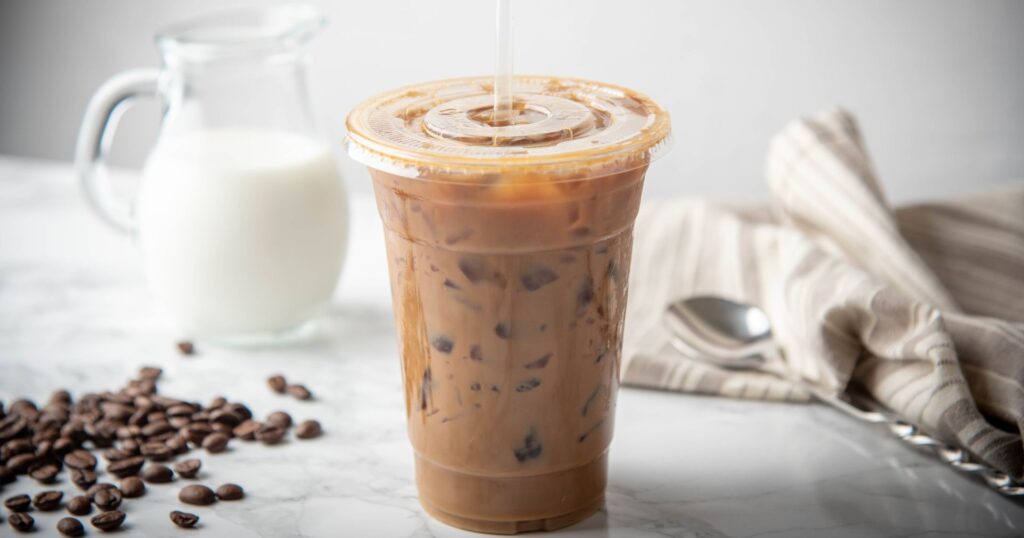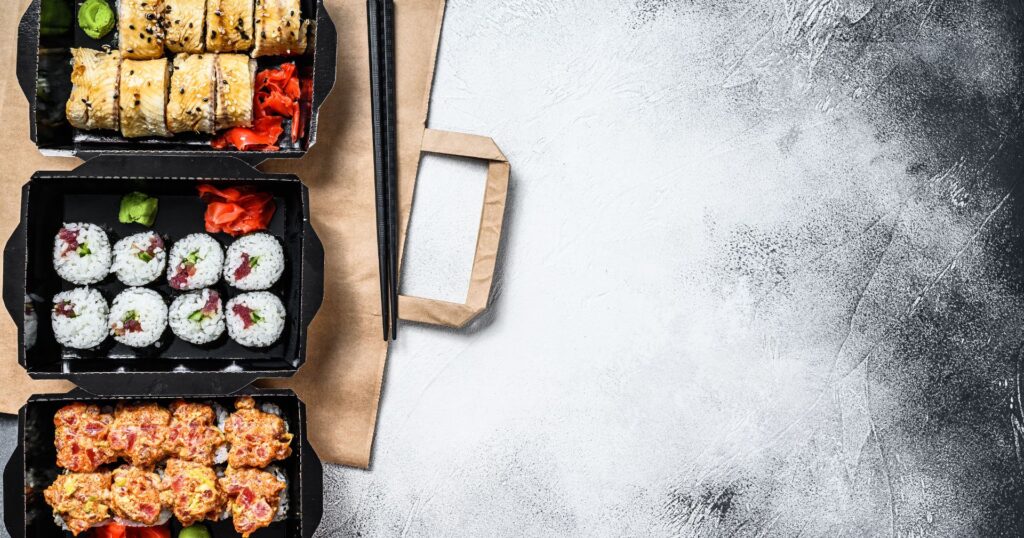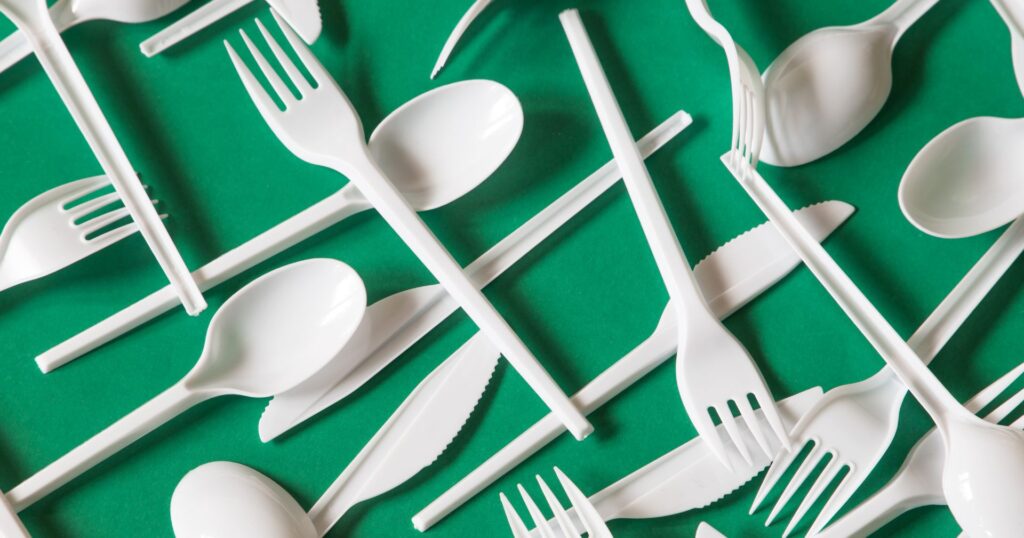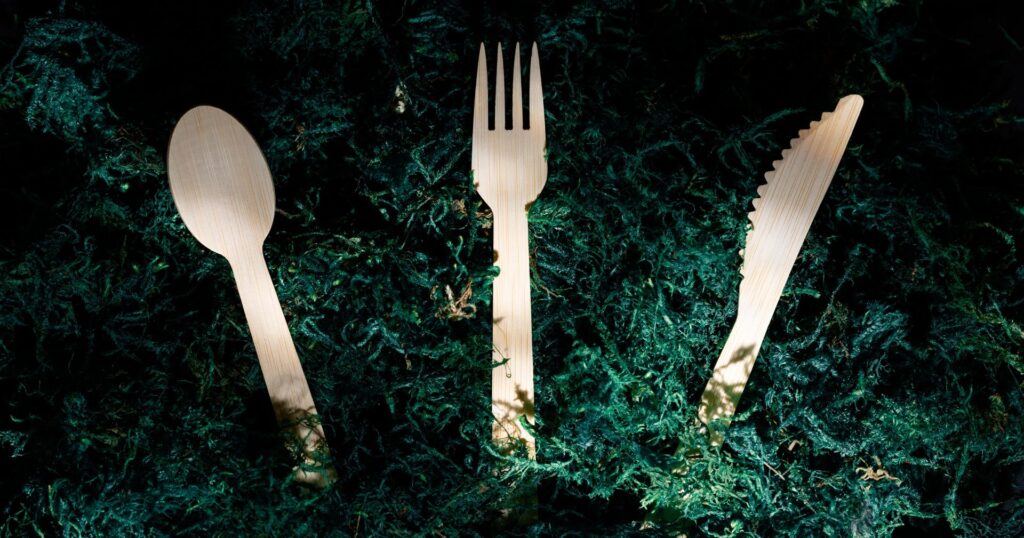Navigating through a sea of regulations can be challenging, particularly when they impact business practices. The BC single-use plastic ban is a significant change that restaurants will need to adapt to. While it may seem daunting, these regulations also present an opportunity for businesses to align themselves closely with the emerging wave of sustainable practices.
From a breakdown of the new regulations to eco-conscious alternatives, let’s take a look at how the BC single-use plastic ban will affect your restaurant.
In this article:
- The BC Single-Use Plastic Ban Overview
- Benefits of the Single-Use Plastic Ban
- How the BC Single-Use Plastic Ban Affects Your Restaurant
- Single-Use Plastic Alternatives
- How Origin Can Help

The BC Single-Use Plastic Ban Overview
The BC single-use plastic ban’s scope covers several categories, each with specific prohibitions and implications for businesses and consumers.
Oxo-Degradable Plastic Packaging & Products
The ban defines oxo-degradable plastic as plastic that can break down naturally.
The prohibition states that business operators and vendors are barred from distributing, selling, or offering for sale any packaging or single-use product that is wholly or partly composed of oxo-degradable plastic.
Certain exceptions apply, such as medical devices and single-use products intended for sale outside of BC.
Food Service Ware & Accessories
The ban on food service ware and accessories distinguishes between Class A and Class B prohibited materials.
Class A prohibited materials include:
- Biodegradable plastic
- Compostable plastic
- Polystyrene foam
- Polyvinyl chloride
- Polyvinylidene chloride
Class B prohibited materials include:
- Biodegradable plastic
- Polystyrene foam
- Polyvinyl chloride
- Polyvinylidene chloride
The prohibitions state that food service providers must not distribute or sell food and beverages in takeout, delivery, or immediate consumption containers that are composed of Class A materials. Business operators must not distribute or sell food and beverages in containers made from Class B materials.
Shopping Bags
The BC single-use plastic ban prohibits businesses from distributing or selling bags for transporting products or food unless authorized by specific regulations. Businesses must charge a minimum fee of $0.25 for paper bags and $1 for reusable bags.
The exceptions to this rule state that businesses may distribute shopping bags freely if the bags are less than 15cm x 20cm or previously used.
Learn More: The BC Plastic Ban Breakdown
The Canada Single-Use Plastic Ban Summary
Canada’s single-use plastic ban comes into effect on December 20th, 2023. The ban is divided into six categories:
- Food Service Ware (clamshell containers, lidded containers, boxes, cups, plates, bowls)
- Cutlery (forks, spoons, sporks, knives, chopsticks)
- Stir Sticks & Stoppers
- Shopping Bags
- Ring Carriers
- Straws
In addition to the categories are specific types of prohibited plastics. These include:
- Polystyrene
- Cutlery
- Polyethylene
- Food Service Ware
- Expanded and extruded polystyrene foam
- Oxo-degradable plastic
- Polyvinyl chloride
- Carbon black
Any plastics not prohibited by the regulations will need to undergo testing to be considered “reusable plastic.” If the items can withstand 100 cycles in a household electric dishwasher without changing shape, they may continue to be manufactured, imported, and sold.
Learn More: The Single-Use Plastic Ban Breakdown

Benefits of the BC Single-Use Plastic Ban
The BC single-use plastic ban brings a wave of positive change with lasting benefits.
Environmental Protection
The ban’s primary goal is to reduce plastic waste. Less single-use plastic means less litter, fewer landfill deposits, and lower marine pollution levels.
Reduced Greenhouse Gas Emissions
By decreasing single-use plastic production and disposal, the ban helps lower greenhouse gas emissions, playing a critical role in mitigating climate change.
Wildlife Conservation
The BC single-use plastic ban also protects wildlife, reducing the risk of animals ingesting or getting entangled in plastic debris.
Encouraging Sustainable Practices
The ban encourages businesses and individuals to embrace sustainable alternatives. From compostable containers to reusable shopping bags, transitions to eco-friendly products contribute to a greener future.
The BC Single-Use Plastic Ban’s Impact on Restaurants
The BC single-use plastic ban presents significant implications for businesses in the food service industry. The pivot away from single-use plastic requires many changes within a business, from operational practices to customer interaction adjustments.
Altering Business Operations
Under the new regulations, food service accessories can only be provided by request or through self-serve stations. This changes the tradition of automatically including these items in takeout bags.
Introduction of New Packaging Solutions
Food service providers will need to replace their current plastic packaging, cutlery, straws, and other accessories. Alternatives must be ban compliant, such as opting for compostable materials.
Finding Alternatives to Plastic
With the ban in place, businesses face the task of identifying and sourcing compliant alternatives for prohibited single-use plastic items. This might also mean changing and trusting new suppliers.
Ever Changing Regulations
While opting for plastic packaging that is ban compliant may seem like the best route now, the provincial and federal ban are evolving and may eventually include common plastics like polypropylene. Businesses will have to stay on top of the ever changing regulations and may want to opt for materials that will always remain compliant, such as compostable products.

Single-Use Plastic Alternatives
As the BC single-use plastic ban comes into effect, businesses need to look for alternatives that comply with the new regulations.
Paper takeout containers are strong and lightweight, suitable for a variety of cuisines.
To make them water and grease-resistant they can come lined with aqueous coating, making the container fully home compostable after use.
If lined with plastic, the containers are recyclable in some municipalities if rinsed out. Keep in mind that many cities view plastic-lined containers as landfill-only waste.
Learn More: How Eco-Friendly Is Aqueous Coating?
Single-use wood and bamboo cutlery are great alternatives to plastic. Durable and compostable, they provide strength and functionality without adding to our ever-growing landfills.
Learn More: Myths About Single-Use Wood Cutlery Debunked
Double-walled paper cups offer a sustainable alternative to plastic. If lined with aqueous coating, they can be composted once consumers finish with their beverage. If lined with plastic, they are either recyclable or landfill waste, depending on the municipality.
Unlike plastic straws, paper straws will disintegrate if they find their way into the ocean. With four layers of premium paper, these straws are sturdy enough to last through beverage consumption without turning to mush.

How Origin Can Help Your Business Make the Switch to Sustainability
Understanding and adapting to environmental regulations can be challenging, but Origin Sustainables is here to bridge the gap. We’re your allies on this journey to sustainability, taking uncertainty out of the equation.
Regulations Are Our Territory
The evolving landscape of environmental laws requires regular research. With Origin, you don’t have to keep up alone. Our up-to-date understanding of the BC single-use plastic ban ensures our product line always adheres to the latest regulations, effectively eliminating guesswork.
Committed to Compostability
We’re passionate about going beyond compliance. Origin’s products are fully compostable or recyclable. By choosing us, you’re making a sustainable choice, supporting a circular economy where waste can be part of the nutrient cycle.
Durable & Ready to Deliver
The rigors of takeout and delivery require durable products. Our compostable products are designed to withstand the demands of food service, providing reliability without sacrificing sustainability.



